Everything You Need to Know Before You Schedule Your Wisdom Teeth Removal
Wisdom teeth extraction is a common dental procedure that many people undergo. However, it can be a scary prospect for some. This article will explain the problems wisdom teeth can cause, the benefits of their removal, what the procedure involves, and how it can help you feel better
What are wisdom teeth?
Third molars, also known as wisdom teeth, are the last set of teeth to come in. They typically erupt between the ages of 17 and 25. Wisdom teeth are often removed because most mouths aren’t big enough to have all four of them – and when they don’t come in properly, they can cause a lot of problems.
Wisdom teeth, or third molars, were necessary for our ancestors when their diet consisted mostly of raw meat, leaves, roots, and nuts. Scientists believe that wisdom teeth were useful because humans weren’t so evolved yet. They could grind down the food with their molar tooth and have a more balanced diet. However, with the modern-day diet of soft foods and processed snacks, wisdom teeth are no longer necessary.
Wisdom teeth, also known as third molars, are the last teeth to erupt in the mouth. They typically show up in young adults between the ages of 17 and 21. As most mouths are not big enough for 4 more teeth, wisdom teeth often need to be removed.
Impacted wisdom teeth
Wisdom teeth are the last teeth to erupt in the mouth and, for many people, they become impacted- meaning that they get stuck below the surface of the gums. When wisdom teeth grow at an odd angle, it can cause a variety of complications. Wisdom teeth usually appear between 17 and 25 years old, but when they don’t have enough room to erupt into the mouth, they can become impacted.
Wisdom teeth are the third set of molars that often grow at an angle towards another tooth or the back of the mouth. However, sometimes they do not erupt at all. Wisdom teeth can grow at angles to the next tooth, straight up and down, or at right angles. If wisdom teeth only partially emerge from the gum line, they are known as partially impacted wisdom teeth. Impacted wisdom teeth can cause a variety of problems, including tooth pain and gum disease.
Impacted wisdom teeth can often be problematic and lead to various dental issues. If an impacted wisdom tooth is causing pain or damage to the adjacent teeth, it is generally recommended to remove it. Otherwise, the impacted wisdom tooth can cause pain, decay, cyst, and tumor. In some cases, infection, shifting teeth, and jaw and gum diseases may also occur. Removal is thus often the best option to avoid these problems.
It is important for people of all ages to schedule regular dental exams. For wisdom teeth, it is especially important to see a dentist because they will be able to determine if the tooth needs to be removed. If it is determined that the wisdom tooth needs to be removed, the dentist will perform the procedure and ensure that the patient heals properly.
Wisdom teeth removal
Wisdom teeth extraction is a common procedure that is done for a variety of reasons. In some cases, your wisdom teeth may be healthy but because of orthodontic treatment, they need to be removed. In other cases, your wisdom teeth can become impacted or partially erupt through the gum in a misalignment. Wisdom tooth removal is best done sooner than later to avoid potential problems and complications.
There are many reasons why you should remove your wisdom teeth as soon as possible. One reason is that the longer they stay in your mouth, the more problems they will cause. Wisdom teeth can put pressure on adjacent teeth and eventually cause permanent damage. If left untreated, cysts can form around the wisdom tooth, which is a much more serious issue.

Purpose of wisdom teeth removal
Dentists will monitor your wisdom teeth during routine appointments and may recommend removing them or having surgery if any issues arise. These issues can include infection, tooth decay, damage to surrounding teeth, periodontal disease, bone loss, and tooth loss.
Your dentist may suggest having wisdom teeth extraction even if you don’t have any current symptoms. The reason for this is that potential problems are likely to happen in the future if they are not removed now. Wisdom teeth can be difficult to clean, and they’re in an area that is already challenging to keep clean. This can lead to cavities, gum disease, and other dental problems.
The main purpose of wisdom teeth extraction is for preventing infection or the development of bad breath. An oral surgeon may refer you for the surgery if they feel that your wisdom teeth are causing pain or other issues. Before the surgery, you will have a consultation with the oral surgeon to discuss your options and what to expect.
If you are experiencing a dental emergency, it is best to call your dentist or surgeon immediately. Wisdom teeth removal is usually a scheduled procedure, but if there is an emergency, the dentist may need to remove them sooner.
Cost of wisdom teeth removal
The cost of wisdom teeth removal can vary depending on a number of factors. One of the most important factors is whether or not the teeth are impacted. If they are, the costs will be higher as more work will need to be done to remove them. The cost also varies from patient to patient, as each person’s situation is unique. There are many variables that go into the cost of wisdom teeth removal, so it is best to consult with your dentist to get an accurate estimate.
The cost of wisdom teeth removal is determined by the treatment plan designed by the oral surgeon. The estimated cost of your treatment will be provided to you at your consultation appointment with a Whitewater Oral Surgery Group dentist.
On the whole, wisdom teeth removal is a very common procedure in the United States. Every year, around 10 million Americans have their wisdom teeth removed. Unfortunately, many people know little about wisdom teeth or the removal process. In this article, we will explore what you need to know before you schedule your wisdom teeth removal appointment.
Basic surgical extractions
Basic surgical extractions are when the wisdom teeth have not yet broken through the gums. If you still have your wisdom teeth in the gum tissue, they will not be extracted like a simple extraction. There is an incision made into the gums to help free the wisdom teeth. The dentist then uses forceps and a suction tube to gently remove the tooth.
Wisdom teeth extraction is a common surgical procedure. While it is often necessary, the cost of the surgery can be prohibitive for some people. The surgery is typically performed by a dentist and involves removing the wisdom teeth from the mouth.
The most extensive type of wisdom tooth surgery is the removal of bone, which typically costs between $1,000 and $1,500. If the surgery requires additional care for successful removal, you can expect to pay double that price. For example, if the dentist needs to remove a cyst or cut into healthy gum tissue to get to the tooth, your total cost will be more than $3,000.While wisdom teeth removal is a basic surgical extraction, there are certain cases that will require more care and, as such, could cost you twice the price. If your wisdom teeth have impacted other teeth or if they are deeply rooted, for example, you can expect to pay more for the surgery.
Extensive surgical extractions
The most extensive type of wisdom tooth surgery is removal. This procedure involves extracting all four wisdom teeth at once. The cost for this surgery typically ranges from $1,000 to $1,500 or more, depending on the dentist’s rates and the geographic location.
In some cases, wisdom teeth will require an extensive surgical extraction. If the tooth is still in the gum tissue itself, it will require a more advanced procedure that can come with a double price tag.
The cost of wisdom teeth removal surgery can be extensive, with prices ranging anywhere from $200-$400 per tooth. In some cases, it may be necessary to remove all four wisdom teeth at once. This can cost anywhere from $750-$1,500.
Does insurance cover the removal of wisdom teeth?
Impacted wisdom teeth can often lead to a number of future problems, such as tooth decay, gum disease, and even cysts. Because of this, the removal of wisdom teeth is usually considered a medically necessary procedure. Wisdom teeth should always be removed by a dentist or oral surgeon who has the proper training and experience in order to minimize any potential risks.
The cost of wisdom teeth removal without an oral surgeon can be significantly less, but there are risks associated with it. First, the tooth is not affected as much as it would be for someone with multiple tooth losses. Second, removing the wisdom teeth without an oral surgeon will require breaking the jaw to remove them, which can lead to complications and other serious issues. Finally, all four wisdom teeth are removed in one hour or less–saving the patient time and money.
Removal of wisdom teeth is a common dental procedure. However, it can affect the alignment of a child’s smile. There are also signs and symptoms associated with a “dry socket” including severe pain, blood clot loss, and visible bone. If your child has a “dry socket tooth,” it may have an unpleasant smell.
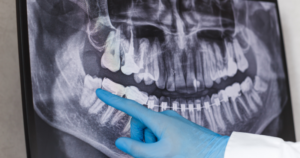
How to prepare for wisdom teeth extraction
There are a few things you can do to prepare for wisdom teeth removal. The most important is to follow your surgeon’s instructions closely. In general, you should avoid eating or drinking anything for 4-8 hours before the surgery. You should also ask your surgeon any questions you have about the procedure. Finally, make sure you have someone there to take care of you after the surgery is done.
When wisdom teeth removal is scheduled, it is important to ask the surgeon about anesthesia and what type will be used. The price for wisdom teeth removal will also depend on the level of impaction and number of teeth removed. After surgery, soft or liquid-based foods could be helpful. To prepare for your recovery, buy some soft or liquid-based foods that are easy to eat without chewing.
Location
Wisdom teeth removal is a common dental procedure that is typically performed in a dentist’s or oral surgeon’s office. The wisdom teeth are removed and the patient typically recovers within a few days.
What to wear
When you are scheduled for surgery, you may be wondering what to wear. The main thing is to wear comfortable clothes that will be easy to move around in. You no longer need to worry about rolling up your sleeves or having short sleeves – the anesthesia team will take care of everything. If you are concerned about your child’s anxiety, talk to the anesthesia team about supplements or alternatives that could help them feel more at ease.
Food and drink
After you have surgery, it is important to follow the doctor’s orders carefully. This includes specific instructions on what you can and cannot eat. Depending on the type of sedation used, your doctor may give you different instructions. It is very important to stay hydrated and eat well during your recovery so that your body can heal properly. There are many foods that are easy to eat without much chewing, such as soup, yogurt, or apple sauce. Talk to your doctor if you have any questions about post-surgery eating habits.
Medications
There are many different medications that people take on a daily basis. Some of these medications, such as aspirin, Coumadin (warfarin), and Advil (ibuprofen) can increase the risk of bleeding problems. It is important to let your healthcare provider know about all the medications you are taking, including prescription and over-the-counter drugs, vitamins, and other supplements. Always take prescriptions as directed. Pain control is one common reason for prescribing medications.
As the surgical site heals, the pain will decrease. If you are taking prescription medications such as birth control pills and antibiotics, be aware that their effectiveness may be decreased by up to 30 days. To get back on schedule, decrease the frequency of taking medication.
What to bring
When you go for your wisdom teeth surgery, you will need to bring some necessary paperwork with you. This includes your identification card, insurance information, and a signed consent form from your doctor. If you have any questions or concerns, be sure to discuss them with your surgeon before the surgery. Make arrangements for someone to pick you up after the surgery and take you home. This person can wait in the waiting room if desired. There are many comprehensive guides on wisdom teeth removal available online that can help answer any other questions you may have.
Pre-op lifestyle changes
If you are scheduled for gum surgery, there are a few things you should avoid in the hours leading up to your operation. Firstly, do not smoke tobacco or drink alcohol for at least 8 hours before the surgery. Additionally, it is important to avoid eating and drinking anything besides water for at least 8 hours before the surgery. Gum surgery is a complicated topic and can be done with the help of gum surgery tools.

What to expect on the day of surgery
When you go in for your wisdom teeth extraction, there are a few things you can expect. First, it’s important to arrive on time so that the oral surgeon can get started as soon as possible. You may also have dental X-rays performed on the day of surgery if they are deemed necessary. In most cases, wisdom teeth removal is done under local anesthesia, which numbs the area around the tooth is removed. The surgery procedure itself usually takes about 30 minutes.
Most importantly, parents should be aware that in some cases the bone surrounding the wisdom teeth must be removed. In order for the child to feel no pain during and after surgery, a local or general anesthetic will likely be administered. Depending on the type of pain medication given and the child’s individual tolerance, discomfort may last anywhere from 3 days to a week.
During the surgery
The surgery will last approximately 45 minutes and you will be completely anesthetized so that you feel no pain or discomfort. Nitrous oxide (laughing gas) will be used to keep you sedated and comfortable during the surgery. This is the most comfortable option for this type of surgery.
After the local anesthetic numbs the area, your surgeon will start sedating you. Once you are sedated, he or she will remove the gum tissue covering the tooth and then remove the impacted wisdom tooth. If there is a bone that needs to be removed, the surgeon will use a drill to get through it and extract the tooth.
On the day of surgery, impacted wisdom teeth will be loosened and the surgical instruments used for sectioning and removal. This is sometimes necessary when impacted wisdom teeth are removed or when the healthcare provider feels the patient will better heal with stitches in place.
After the surgery
After the surgery is completed, the nitrous oxide gas or IV drip will be stopped. You’ll be given gauze to bite down on so that the area can clot. You may feel some mild effects of anesthesia, including nausea, dizziness, and shivering. You’ll then be brought to a recovery room where you will be monitored.
On the day of surgery, you can usually expect to spend less than an hour in the recovery room. However, wisdom teeth surgery is a bit different as you will be groggy with a swollen jaw after the procedure. In addition, the local anesthetic will wear off within hours after surgery so it’s important to review your post-surgical instructions with your surgeon before the procedure.
- All You Need to Know About Dental Braces: Types, Cost, How They Work, and More - September 21, 2022
- Mouthguards: Why You Need One and How to Choose the Best - June 4, 2022
- Qualities of a Good Dentist: Things You Should Expect From Your Dentist - December 15, 2021


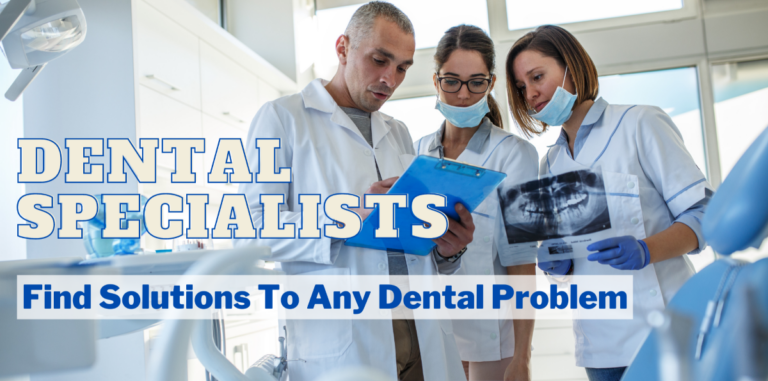
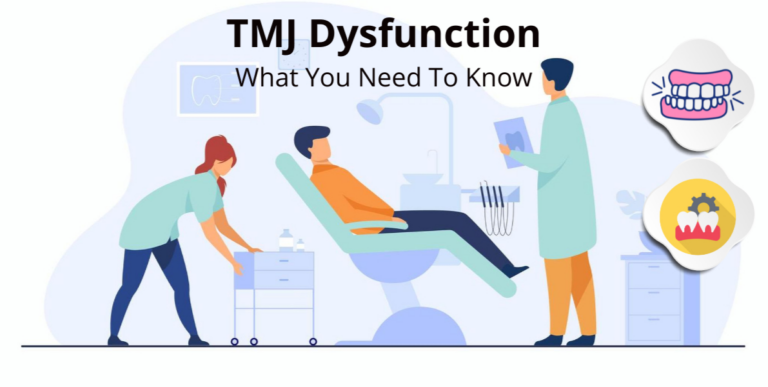
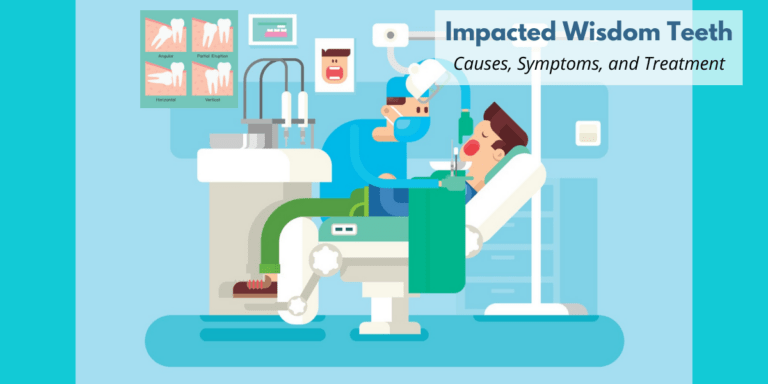

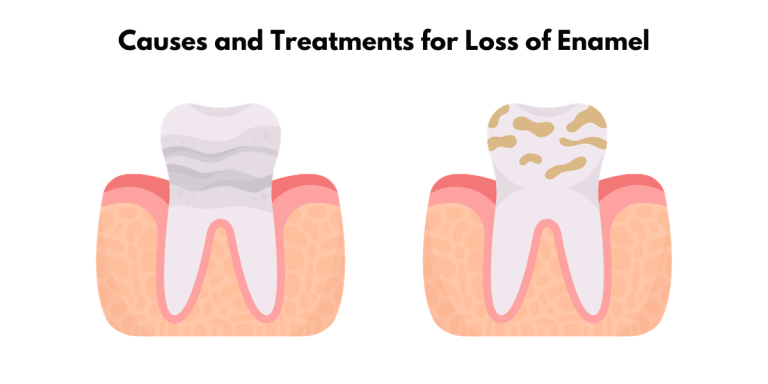
My wisdom tooth has been killing me and I am unable to move my jaw. I’m honestly scared to have it removed but thanks for this helpful article and mentioning that after the surgery, one should not consume alcohol or smoke. I really hope to find a good dentist that can make me comfortable throughout the extraction.